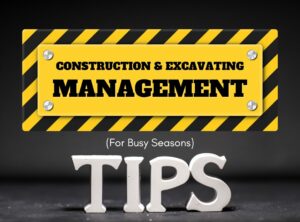As the business year wraps up, construction companies are tackling the crucial task of end-of-year processing. This phase not only signifies the close of another business cycle but also sets the stage for future success. Through the experiences of industry players, including some of our clients, we’ve gathered valuable insights into key considerations and steps for construction companies to achieve a smooth and effective end-of-year processing.
Financial Review and Reporting:
The initial step in end-of-year processing involves a comprehensive financial review. The emphasis is on examining income statements, balance sheets, and cash flow statements to identify and address discrepancies, errors, or anomalies. Accurate financial reports serve as the bedrock for strategic decision-making and facilitate compliance with regulatory requirements.
Project Profitability Analysis:
Construction projects are the lifeblood of a construction company. Evaluating the profitability of each project is key to identifying successful ventures and areas for improvement. The significance of reviewing project budgets, costs, and revenue is highlighted to gain insights into performance and make informed decisions for the upcoming year.

Tax Planning and Compliance:
Year-end processing offers an opportunity for proactive tax planning. Collaborating with tax professionals to explore available credits, deductions, and incentives is a common practice. Ensuring accurate documentation of all financial transactions and compliance with tax regulations can significantly impact the company’s bottom line.
Employee Compensation and Benefits:
Reviewing employee compensation and benefits is an integral part of the year-end process. Ensuring accurate and up-to-date payroll records, evaluating performance-based bonuses, benefits packages, and retirement contributions are key considerations. Additionally, adjustments for the upcoming year based on market trends and company performance are advised.
Vendor and Supplier Assessments:
The importance of assessing relationships with vendors and suppliers for maintaining a healthy supply chain is stressed. Reviewing contracts, negotiating terms, and evaluating performance are highlighted as essential steps. This is an opportune time to identify cost-saving opportunities, negotiate better terms, and explore alternative suppliers if necessary.

Technology and Software Evaluation:
Embracing technology to streamline end-of-year processes is a common theme. Evaluating the efficiency of existing software and considering upgrades or new solutions that enhance project management, accounting, and overall business operations are key takeaways. Automation significantly reduces manual errors and improves productivity.
Strategic Planning for the Next Year:
End-of-year processing goes beyond closing the books on the current year; it’s about preparing for the future. Engaging in strategic planning sessions to set goals, allocate resources, and establish a roadmap for the upcoming year is crucial. Assessing market trends, industry challenges, and opportunities positions the company for success.
In conclusion, successful end-of-year processing for construction companies involves a multifaceted approach. This encompasses financial reviews, project analysis, tax planning, employee assessments, vendor evaluations, technology upgrades, and strategic planning. By dedicating time and resources to these crucial tasks, construction companies can ensure a smooth transition into the next business cycle, setting the stage for sustained growth and success.






